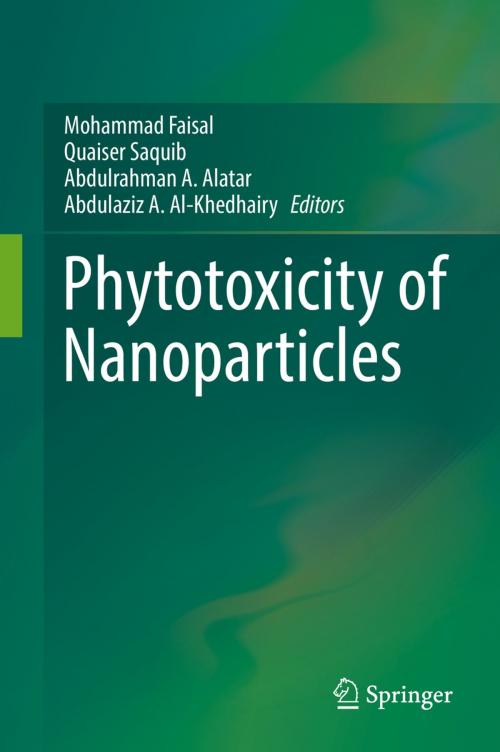Phytotoxicity of Nanoparticles
Nonfiction, Science & Nature, Science, Biological Sciences, Botany, Technology, Agriculture & Animal Husbandry| Author: | ISBN: | 9783319767086 | |
| Publisher: | Springer International Publishing | Publication: | June 28, 2018 |
| Imprint: | Springer | Language: | English |
| Author: | |
| ISBN: | 9783319767086 |
| Publisher: | Springer International Publishing |
| Publication: | June 28, 2018 |
| Imprint: | Springer |
| Language: | English |
This book provides relevant findings on nanoparticles’ toxicity, their uptake, translocation and mechanisms of interaction with plants at cellular and sub-cellular level. The small size and large specific surface area of nanoparticles endow them with high chemical reactivity and intrinsic toxicity. Such unique physicochemical properties draw global attention of scientists to study potential risks and adverse effects of nanoparticles in the environment. Their toxicity has pronounced effects and consequences for plants and ultimately the whole ecosystem. Plants growing in nanomaterials-polluted sites may exhibit altered metabolism, growth reduction, and lower biomass production. Nanoparticles can adhere to plant roots and exert physicochemical toxicity and subsequently cell death in plants. On the other hand, plants have developed various defense mechanisms against this induced toxicity. This books discusses recent findings as well as several unresolved issues and challenges regarding the interaction and biological effects of nanoparticles. Only detailed studies of these processes and mechanisms will allow researchers to understand the complex plant-nanomaterial interactions.
This book provides relevant findings on nanoparticles’ toxicity, their uptake, translocation and mechanisms of interaction with plants at cellular and sub-cellular level. The small size and large specific surface area of nanoparticles endow them with high chemical reactivity and intrinsic toxicity. Such unique physicochemical properties draw global attention of scientists to study potential risks and adverse effects of nanoparticles in the environment. Their toxicity has pronounced effects and consequences for plants and ultimately the whole ecosystem. Plants growing in nanomaterials-polluted sites may exhibit altered metabolism, growth reduction, and lower biomass production. Nanoparticles can adhere to plant roots and exert physicochemical toxicity and subsequently cell death in plants. On the other hand, plants have developed various defense mechanisms against this induced toxicity. This books discusses recent findings as well as several unresolved issues and challenges regarding the interaction and biological effects of nanoparticles. Only detailed studies of these processes and mechanisms will allow researchers to understand the complex plant-nanomaterial interactions.















